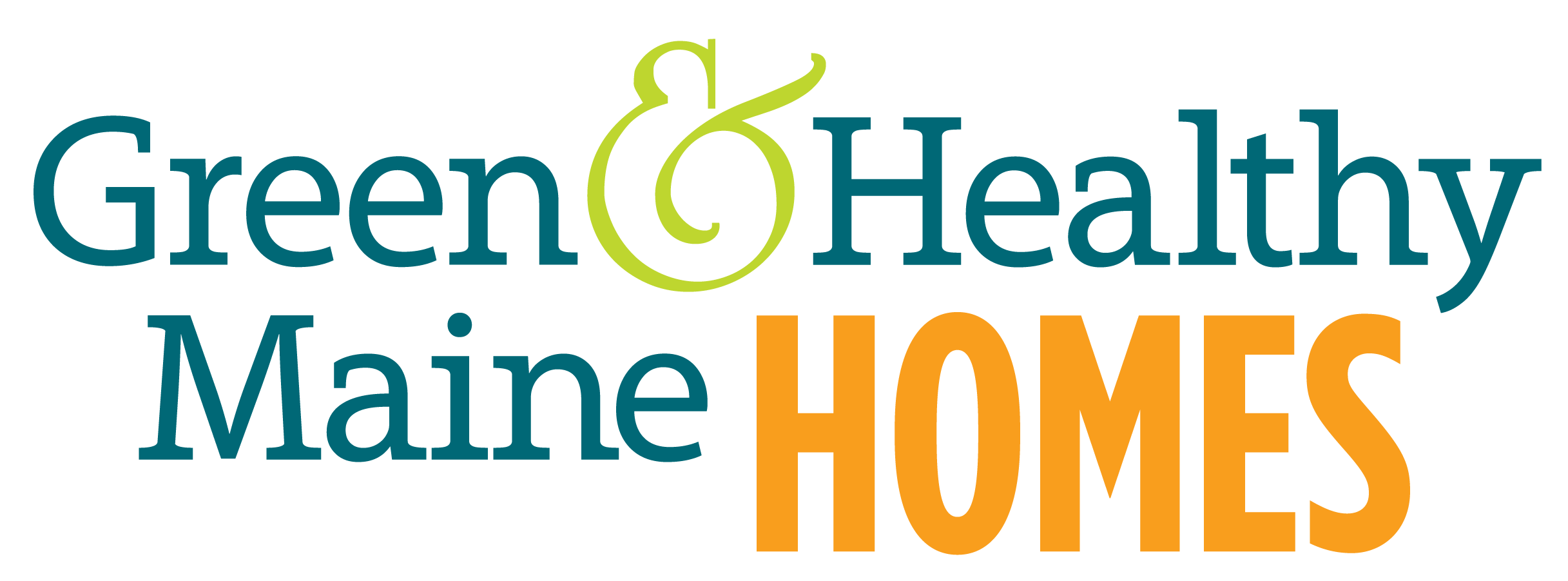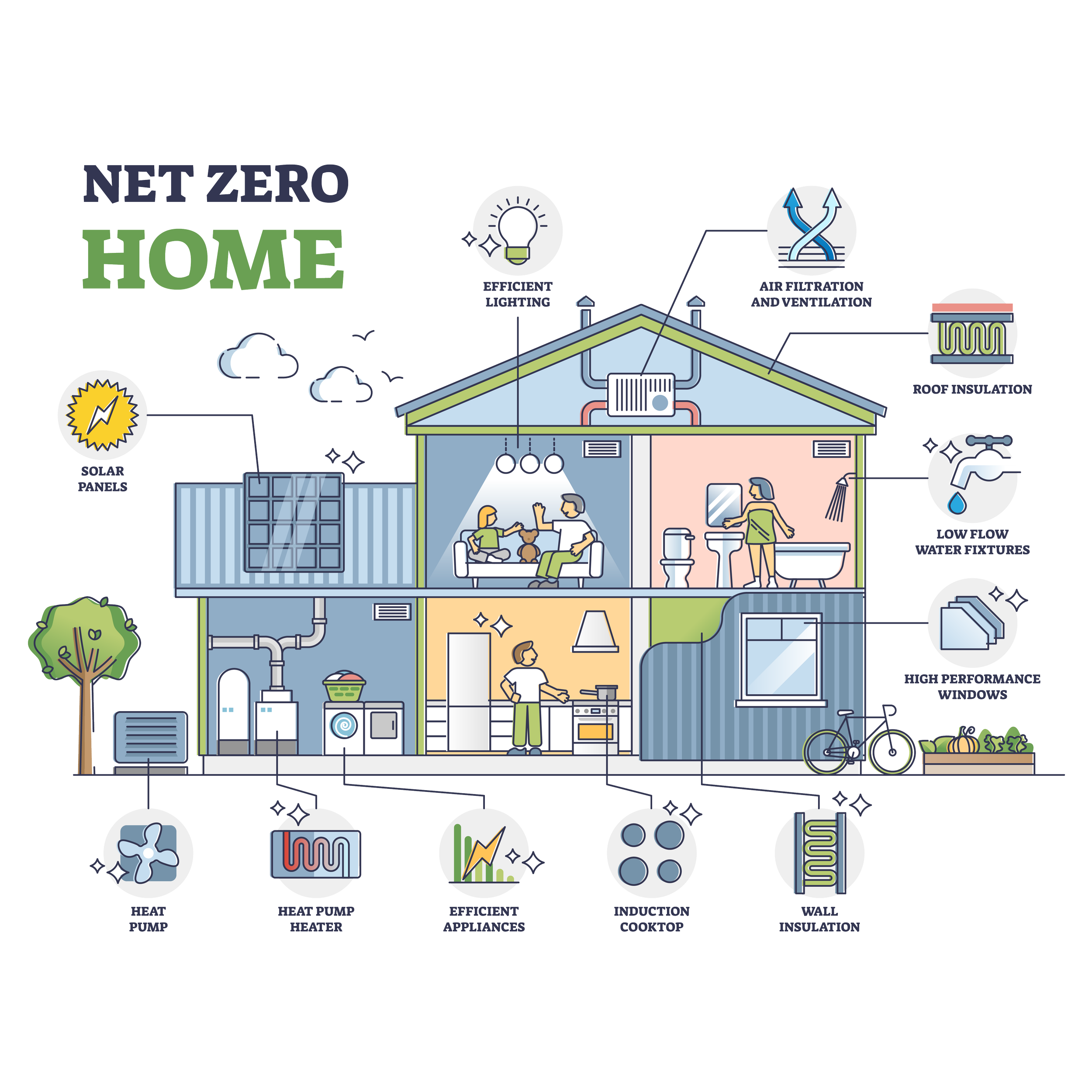New construction is warming to "heat pumps only"
The green Real estate dispatch
By Julia Bassett Schwerin, Maine Green Broker
A NEW PARADIGM HAS EMERGED in home construction: the single-family home heated solely with heat pumps. This is a trend worth celebrating!
In 2023, 4,446 single-family building permits were issued in the state of Maine, according to the U.S. Census Bureau. It is reasonable to estimate that a quarter of these homes were built with only heat pumps, based on an analysis of listing data in MaineListings (MLS) extrapolated to the population of all building permits. Of all the 2023 newly constructed properties listed in the statewide MLS, 23% showed only heat pumps as a heat source.
While the entire population of building permits issued is five times larger than the number listed in the MLS, this trend is still a strikingly positive phenomenon. Homes heated only with heat pumps did not spend more time on the market and had the same list-to-sold price ratio compared to homes heated with fossil fuels.
Many group efforts converged for this paradigm to emerge:
New building energy codes require less energy to heat in cold weather. The Maine Uniform Building and Energy Code board agreed on the 2015 IECC building energy code which went into effect in July 2021. This code requires a new building to pass a blower door test of 3 air changes per hour at 50 pascals of pressure, which is tight enough for a building to be quite comfortable and efficient with only heat pumps. In comparison, according to the Efficiency Maine 2015 Baseline Residential study, the average single-family home in Maine has a leakage rate of 11.2 air changes per hour at 50 pascals of pressure in a blower door test. The next code upgrade to the 2021 IECC is being finalized now.
Heat pumps have enjoyed generous rebates from Efficiency Maine and have been installed in over 100,000 homes and climbing in Maine. The cold climate heat pumps recommended by Efficiency Maine work at temperatures as low as -22° Fahrenheit.
Fire Marshall’s office training for code officials and builders on how to use the new energy codes has been widespread, with the help of many contractors, and has helped the codes catch on quickly.
Buildings that have zero-combustion construction are healthier due to cleaner indoor air quality. In contrast, fossil fuel combustion for heat, hot water, and cooking releases carbon monoxide, sulfur dioxide, nitrogen dioxide, particles such as soot, ozone, and the greenhouse gases carbon dioxide and methane into indoor air and as exhaust into the atmosphere, according to the American Lung Association. Buildings using only heat pumps have lower operational cost, attract higher rental income, and yield increased multiples at resale, according to independent research by Freddie Mac and Berkeley studies.
Efficiency Maine currently ranks the geothermal heat pump as the least expensive to operate (annual cost $1,592) followed by the ductless heat pump (annual cost $1,698), compared to the home heating system still most prevalent in Maine, the oil boiler (annual cost $3,373). Heating with a ductless air-source heat pump, or mini-split, would save an average of $1,675 per year. Many anecdotal sources, such as the property management firm ManageCasa, say that “tenants eager to avoid high electric power bills and sweltering heat may be willing to pay more for a home with heat pumps,” which only makes sense since tenants often pay for utilities.
A study published in 2022 by Nature Energy found that homes with heat pumps sold for $10,000 to $17,000 more. Imagine being able to show prospective buyers how heating with only heat pumps will pay off for them and future families who live there in health and financial benefits. Instead of having to make buildings more efficient after construction at greater cost, the new building energy codes coupled with Efficiency Maine rebates, sound financial analysis, and effective training have come together in this new paradigm.
As the storms and flood damage up and down the coast of Maine this winter showed, we are very vulnerable to the negative climate impacts caused by burning fossil fuels. The Maine Climate Council’s Maine Won’t Wait climate plan shows the resolve of Mainers to do all we can to save our shores for all the generations to come with ambitious but attainable goals for lowering our carbon emissions. The new paradigm of building homes heated only with energy-efficient and clean heat pumps is a huge step in the right direction.
Read more: Green Real Estate Dispatch
This article appeared in the Spring 2024 edition of Green & Healthy Maine HOMES. Subscribe today!
Find Maine experts that specialize in healthy, efficient homes in the Green Homes Business Directory.







